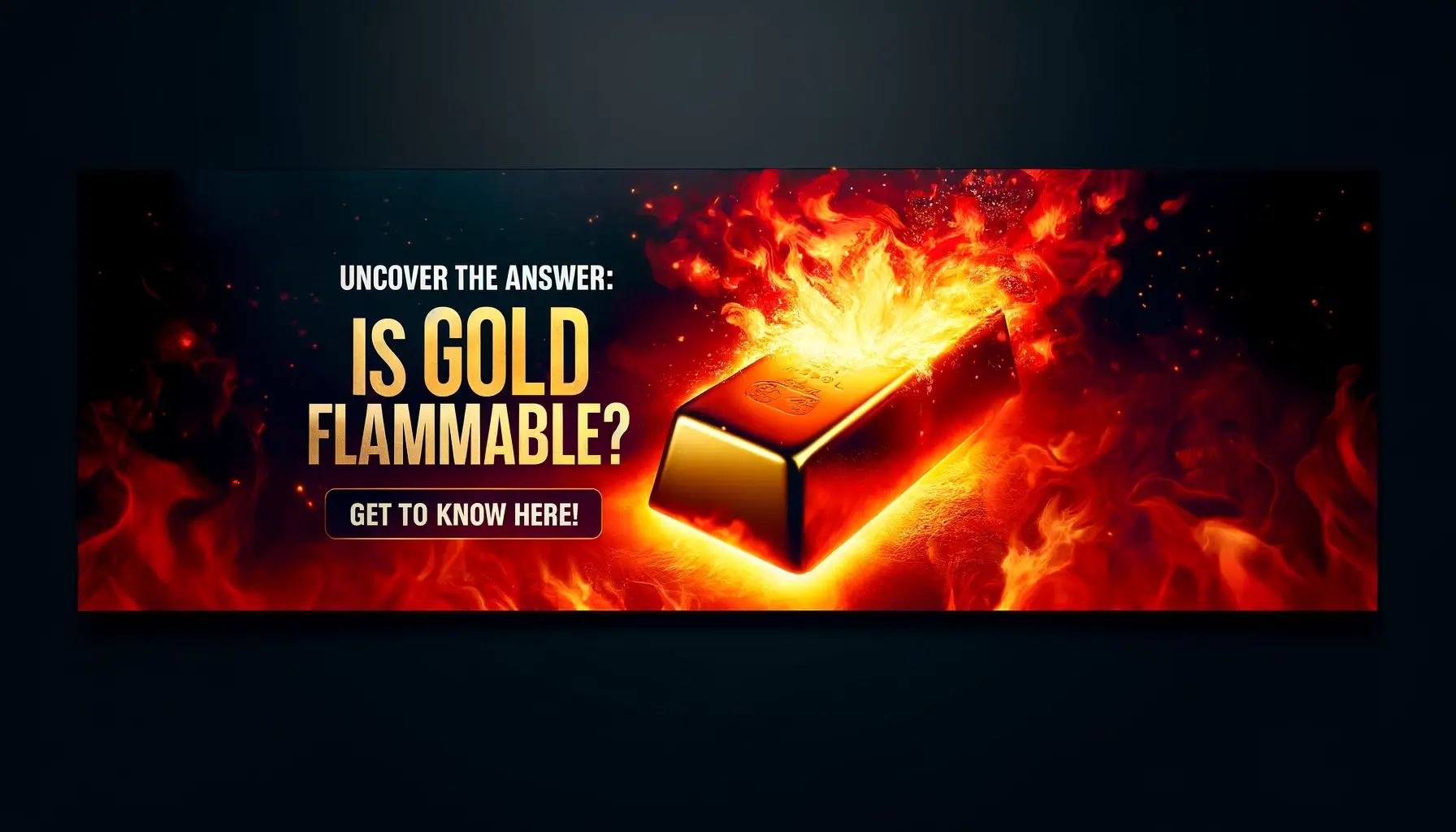No, gold is not flammable. It does not catch fire or burn.
In a Nutshell: Is Gold Flammable?
- You will learn why gold does not burn like wood or paper.
- You will understand how gold behaves in very hot situations, like a house fire.
- You will find out if there are any fire-related risks with gold.
Estimated reading time: 4 minutes
Have you ever wondered if your gold jewelry or coins could burn? It’s a common question. Gold is a special metal in many ways. One of its key features is how it reacts—or doesn’t react—to fire.
What Makes Something Catch Fire?
For something to be flammable, it needs to react with oxygen quickly. This reaction creates heat and light, which we see as fire. Think of wood in a campfire. The wood changes chemically as it burns.

Gold is different. It’s a very stable metal. This means it doesn’t like to change its chemical form easily. Gold is known for being inert, which means it doesn’t react with most other things, including oxygen in the air. This is a big reason why gold is not flammable.
Gold’s Special Properties: Why It Won’t Burn
Gold has a very high melting point. It needs to reach 1,064 degrees Celsius (1,947 degrees Fahrenheit) to melt. A typical house fire might get as hot as 600 to 924 degrees Celsius. This is usually not hot enough to melt gold. So, can gold survive a fire? Yes, it often can without melting.
Even if gold gets hot enough to melt, it still doesn’t burn. Burning is a chemical change. Melting is a physical change, like ice turning into water. The gold would just turn into liquid gold. It wouldn’t become a new substance. Safety information sheets clearly state that gold is non-combustible.
Gold is also a great heat conductor. This means heat spreads through it quickly. This property is useful in things like electronics.
Gold in a Fire: What Really Happens?
If your gold items are in a fire, they will get very hot. They might get covered in soot from other burning materials. But the gold itself will not burn. If the fire is extremely hot, hotter than a normal house fire, gold could melt.
For example, some gold alloys might have slightly different melting points. But even if it melts, the gold is still there. It just changes shape.
Buy Gold Online: The Smart and Secure Way
Discover the safest and most reliable strategies to buy gold online. Make informed investment decisions and secure your financial future today!
Learn MoreA quick quiz to check your understanding of gold and fire.
Gold & Fire: True or False?
Safety with Gold: Are There Any Fire Risks?
While solid gold isn’t flammable, there’s a small note for gold in powder form. Very fine gold dust, like dust from other materials, can mix with air. In certain conditions, this mixture could be explosive if there’s a spark. This is mostly a concern in places that work with lots of gold powder.
Also, gold can react with some strong chemicals. These include aqua regia (a mix of acids), halogens, and cyanides. It’s important to keep gold away from these substances. But these are not common fire situations.
- Won’t Burn: Solid gold items will not catch fire.
- High Heat Needed: Gold only melts at very high temperatures, often more than a house fire.
- Dust Caution: Be careful with fine gold powder; it can be a dust explosion risk in specific settings.
- Chemical Watch: Keep gold away from strong chemicals like aqua regia to avoid reactions.
Conclusion: Gold is Not Flammable
So, is gold flammable?
The clear answer is no. Gold’s nature makes it resistant to burning. It has a high melting point and does not react with air to cause a fire. You can feel confident that your gold items are safe from catching fire.
Your Questions About Gold Flammability Answered (Simply)
Can gold catch fire?
What happens if you try to burn gold?
At what temperature does gold get damaged by fire?
Is pure gold flammable?
Can gold survive a house fire?
Does fire destroy gold?
Why is gold not flammable?



